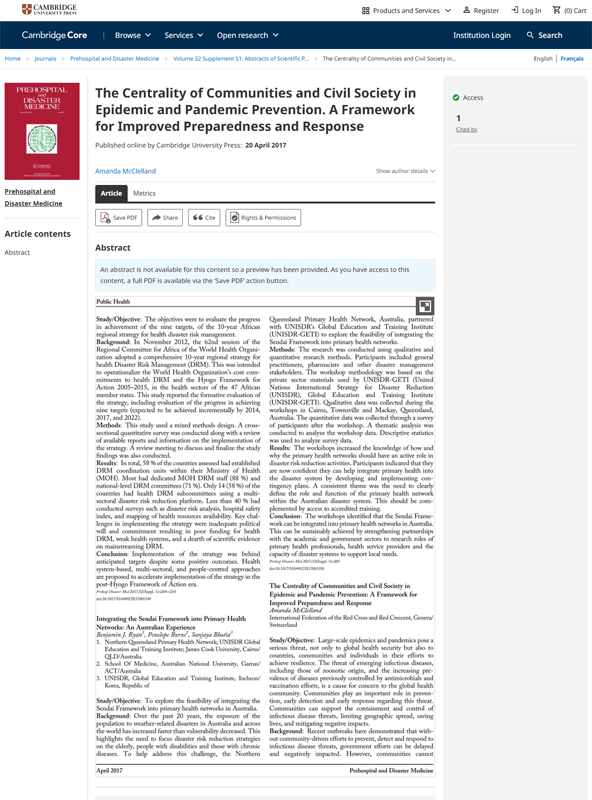Large-scale epidemics and pandemics threaten global health security and community resilience, especially concerning emerging infectious diseases and the resurgence of previously controlled conditions. Communities play a vital role in preventing, detecting, and responding to these threats, as demonstrated in recent outbreaks. Effective community involvement enhances government efforts and mitigates negative impacts. This study emphasizes the importance of collaborative partnerships among civil society, the private sector, and government, highlighting that pre-established systems and trust are crucial. Through case studies from the Red Cross and Red Crescent movement, best practices for community engagement in epidemic preparedness and response are presented, showcasing effective participation and joint planning.
You’ve been redirected from preventepidemics.org.
Prevent Epidemics is part of resolvetosavelives.org.
